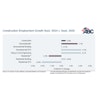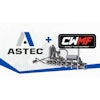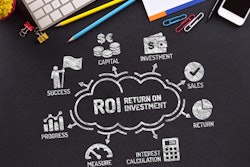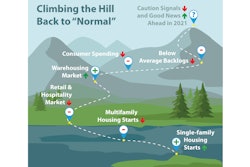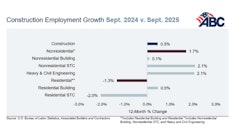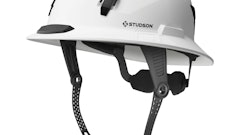
I recently prepared a column for equipment dealers where the editor suggested I educate the readers about what to look forward to in 2021. My response was: “If I knew the answer to that question, I would be on my private jet heading to a Caribbean island with a case of 20-year-old scotch and a box of cigars.” But I gave it a shot, and you will receive some of the same tidbits and suggestions for how to take on 2021 that I offered up to the equipment folks.
After finalizing the article, the hype about the COVID-19 vaccine situation hit the news. This may help soften up how I felt about 2021, which I originally felt would be bleak if the goal is to get back to 2019 economic numbers. However, I still do not see this happening even if vaccines are available and 100 million people get vaccinated. The time, effort and financing required to get us back to “normal” will probably carry us into 2022, because it seems impossible to finance and “fix” everything even if we are able to start the restoration of the economy early in 2021.
Lack of Backlog Hinders Buying
To learn more about what is going on in the industry, I took advantage of the opportunity to spend 45 minutes with a banker who manages a significant contractor portfolio in the Midwest. He reported many of his customers did okay in 2020 but are finding a lack of backlog for 2021. He also noted that many large contractors are now chasing jobs well below the financial levels they normally work in. On the positive side, he indicated new housing and restoration activity is expected to carry over into 2021 probably for the entire year – with a caution regarding interest rates and the availability and cost of materials.
I have read articles in which OEMs are making statements about weak construction backlogs producing negative decisions when it comes to pulling the switch to purchase new equipment, even though certain manufacturers have excess new inventory to sell at an attractive price. Quite frankly, I don’t blame contractors for holding back, because who wants to take on a new payment obligation without knowing if the equipment will be used profitably.
Contractors are also shy about purchasing a used unit unless they have the work to make use of it. Used equipment saw downward price swings of as much as 15% to 20%, which will come back once the backlog grows and start dates of work are on a short timeframe.
Whether new or used equipment is being considered, the same questions need to be answered:
- Do you really need this machine?
- Will it have at least a 65% billable time utilization?
- Will buying this unit mess up your bank covenants?
And I bet you know what I'm going to say next, right? If you have questions or reservations about buying anything right now, your rental store may be where you should spend some time checking out what is available and at what pricing.
Rental stores usually carry all the basic equipment contractors use, but lack when it comes to specialty equipment. If you are in a situation where you would like to rent a specialty unit, I suggest you bring an inventory list of what you need and when you might need it to see if that type of equipment would be available on a re-rent contract. This is where a rental provider rents the specialty equipment from another source and then rents it to you at pricing similar to what you would have paid if the rental company owned the unit in question.
Mind Your Money
No doubt there are contractors in niche markets or supplying niche services to the housing, maintenance and restoration markets doing quite well for themselves. Many plumbers and electricians I talk to say they are remarkably busy even considering the rising cost of materials. Good for them, and if they need new or used equipment that they know will produce required time utilization, they should go ahead and take advantage of the excess new and used units available.
For many of you, however, whether your company is big or small, it would be prudent to:
- use a sharp pencil when bidding jobs
- adjust costs as necessary to match the market conditions that exist
- inspect and make ready your equipment
- have your key personnel informed and involved in managing costs
- review your marketing plan to keep your name at the top of every customer list
And do not forget – cash is king!
One last comment on the PPP loan money many of you received. The PPP funds are taxable in the tax year in which they were spent even though the forgiveness takes place in the following tax year. For most PPP loan recipients, we are talking significant dollars that will be added to your taxable income. Make sure you know what you are doing and what year it will impact.

